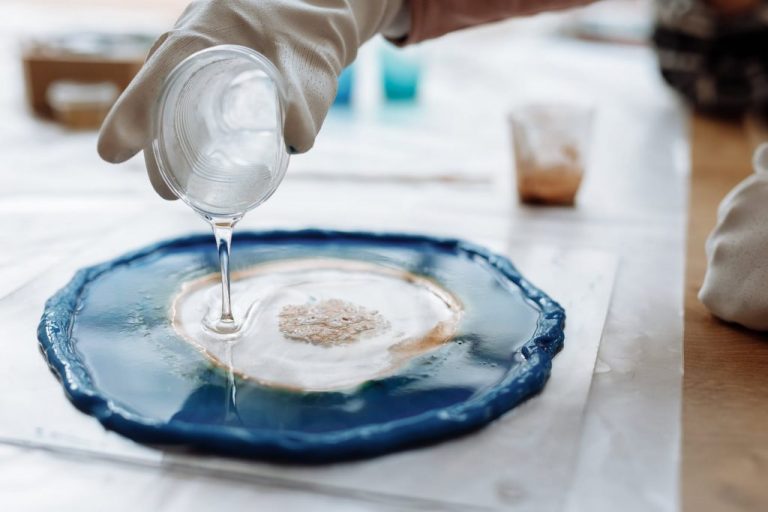What is Liquid Plastic Resin?
Liquid plastic resin is a man-made version of natural resin. Resin, in this sense, refers to an artificially made viscous liquid that is combined with a hardening agent to produce plastic. Liquid plastic is therefore a processed version or natural resin that is used to make several types of plastic with different properties, that serve a variety of functions.
Some of the most commonly known liquid plastic polymers include; epoxy, polyurethane, silicone, and polyester. Due to their pliable nature, these liquid plastic resins have a number of applications.
Differences Between Liquid Plastic and Natural Resin
Notably, the main difference between liquid plastic and resin is its origin. Natural resin is plant-derived and is used by plants as a defence mechanism, making them of natural origin. Plastics, on the other hand, are sourced from petrochemicals.
Take a look at the table below, which lists the other factors as well.
| Liquid Plastic | Natural Resin | |
| Origin | Artificial, petroleum products | Organic, plant-sourced |
| Appearance | Gluey, transparent | Dense, sticky |
| Durability | More durable | Less durable |
| Meltability | Easy to melt and remelt | Not easy to melt |
| Environmental Issues | Yes – Slow degradation in nature, can contain toxic additives | No – All-natural, no toxicity |
The umbrella term ‘resin’ can be broken down into thermoplastic resin and thermosetting resin. The difference between these two resins is their response to heat.
Thermoplastic resins are polymers that melt into a liquid at high temperatures and solidify again upon cooling. Thermosetting resins are viscous polymers that undergo permanent solidification under high temperatures. Commonly known examples of thermosetting resins are nylon and polyurethane.
Resin Casting
A widespread use of synthetic liquid resin is resin casting. In this form of plastic casting, liquid resin, of low viscosity, is combined with a curing agent and is poured into a mould cavity to produce a hardened polymer. The newly formed material is ejected from the mould and is used for other manufacturing processes or sold as-is.
There are many casting methods that can be employed. These include; solid pour, gel coat and layup, slush casting, rotational casting, injection moulding, solid pour with vacuum or pressure, and direct layup/spray (no mould). The suitability of the methods will depend on the material chosen.
Resin casting is a fairly simple method for creating small objects at a low cost and its applications include toys and dental castings. Hobbyists also tend to utilise this method to make things like homemade crafts like jewellery.
The chemicals found in liquid resin materials can be toxic when heated and so can slowly degrade the moulding tool and reduce its lifespan. Therefore, resin casting is not suitable for mass production. Another disadvantage includes the toxic fumes that are released in the resin’s liquified state. These fumes can aggravate the skin and eyes so it is imperative to work in ventilated areas.
Other Uses of Liquid Plastic Resin
Epoxy resin is a thermosetting polymer that is commonly used as an industrial adhesive. It can also be used to coat or laminate surfaces and furnishings to provide strength and protection.
Polyurethane is another durable and water-resistant compound used throughout many industries. It’s mostly in the form of flexible foam and is a mainstay for home furnishings (like bedding, insulator foam for refrigerators) and elastomers (shoe soles, etc.).
Liquid silicone rubber (LSR) is a very versatile material and its uses expand across several industries. Its formulation provides it with many characteristics. Its heat resistance makes it ideal for consumer hardware goods such as microwaves, and automotive parts. Meanwhile, the bacteria resistance proves that LSR can be used for food and medical-grade products. The outstanding electrical conductivity means they are excellent for electronic products too. Due to its highly favourable properties, it is also a popular material for liquid injection moulding.
Polyester resins are usually clear viscous liquids. Once this resin has been thoroughly cured, it becomes water and weather-resistant, making it appropriate for use in swimming pools, waterproof linings and other outdoor uses. But it doesn’t stop there – poly resin also caters to the marine, aerospace, automotive and construction sectors.

